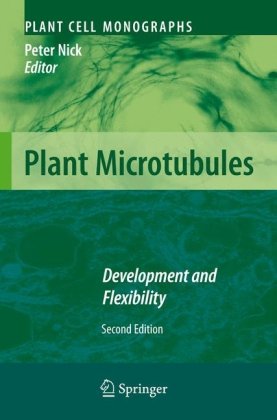

Most ebook files are in PDF format, so you can easily read them using various software such as Foxit Reader or directly on the Google Chrome browser.
Some ebook files are released by publishers in other formats such as .awz, .mobi, .epub, .fb2, etc. You may need to install specific software to read these formats on mobile/PC, such as Calibre.
Please read the tutorial at this link: https://ebookbell.com/faq
We offer FREE conversion to the popular formats you request; however, this may take some time. Therefore, right after payment, please email us, and we will try to provide the service as quickly as possible.
For some exceptional file formats or broken links (if any), please refrain from opening any disputes. Instead, email us first, and we will try to assist within a maximum of 6 hours.
EbookBell Team

4.4
22 reviewsPlant microtubules are key elements of cell growth, division and morphogenesis. In addition to their role in plant development and architecture, they have emerged as regulatory elements of signalling and important targets of evolution.
Since the publication of the first edition of Plant Microtubules in 2000, our understanding of microtubules and their manifold functions have advanced substantially. Consisting of the following three parts, this book highlights the morphogenetic potential of plant microtubules from three general viewpoints:
For those working in academia and applied science, the state of the art of a fascinating field of cell biology is given; for graduate and advanced students the most recent advances are positioned into a clear conceptual context.
From the reviews of the first edition
"The overall impression on this book is a very good sum of knowledge gathered around plant microtubules. ... The readability is very good and the overall scientific level at which the co-ordinated Authors have written their contribution is good to excellent." (Annals of Forest Sciences)
"... a compact book, easy to handle with an excellent subject index. Illustrations and schematic models are highly instructive. ... It is highly recommendable." (Plant Science)